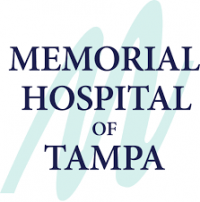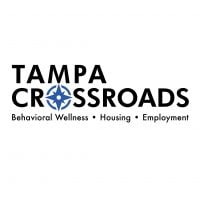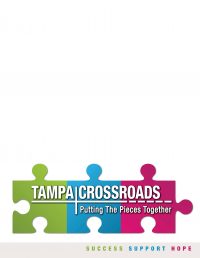Memorial Hospital - Behavioral Health
Drug Rehab Center in Tampa, Florida
Memorial Hospital - Behavioral Health is a specialized treatment center in Tampa, offering inpatient, outpatient, and residential long-term treatment programs for individuals with dual-diagnosis and mental health challenges, and providing evidence-based treatments and therapies, such as electroconvulsive therapy, experiential therapy, nutrition therapy, trauma therapy, and cognitive behavioral treatment.
About This Florida Facility
Memorial Hospital - Behavioral Health is a specialized treatment center located in Tampa, FL, dedicated to providing high-quality care for those struggling with dual-diagnosis and mental health challenges. The facility offers a variety of levels of care, including inpatient, outpatient, and residential long-term treatment programs. They are accredited by the Joint Commission on Accreditation of Healthcare Organizations (JCAHO) and accept private health insurance.
Memorial Hospital - Behavioral Health provides evidence-based treatments and therapies to help their clients achieve mental health stability. These include electroconvulsive therapy, experiential therapy, group therapy, nutrition therapy, trauma therapy, cognitive behavioral treatment, and dual-diagnosis services. All programs are designed to provide individualized treatment plans, tailored to meet the specific needs and goals of each patient. The facility's dedicated team of professionals support their patients on their healing journey, helping them make lasting improvements in their overall mental health.
Genders
Ages
Modality
Additional
Accreditations

JCAHO
Conditions and Issues Treated
When addiction and psychiatric issues co-occur, the addict’s recovery is more successful when both conditions are treated. A dual diagnosis refers to a condition in which the patient is diagnosed with two health issues: addiction and bipolar disorder. The most common therapies are psychotherapy, behavioral therapy, spiritual counseling, 12-step programs, and medication management.
Levels of Care Offered at Memorial Hospital - Behavioral Health
This center offers a variety of custom treatment tailored to individual recovery. Currently available are Dual-Diagnosis, Inpatient, Outpatient, with additional therapies available as listed below.
Inpatient treatment centers offer a safe, secure, and often medically supervised environment for drug or alcohol-addicted individuals. Many of these facilities are equipped to provide detoxification, treatment for co-occurring mental health disorders, and aftercare programs. The patient typically spends 28 to 30 days at the facility and will receive extensive drug counseling.
An outpatient treatment program is set up to help with alcohol or drug addiction or a co-occurring disorder. The patient must attend the facility for their therapy and other programs but can return home each night.
The frequency of mandatory attendance decreases after much of Memorial Hospital - Behavioral Health‘s program is complete.
Outpatient treatment is a recovery approach that allows recovering addicts to live at home while getting rehab for addiction
An outpatient can include day treatments which include attending group sessions one hour per week. A person living in an outpatient environment may be allowed the opportunity to work full time if they choose to and continue studies without interruption from drugs/alcohol.
Outpatient treatment is an option for people who want to maintain their careers and families. Outpatients live at home but attend treatment such as individual counseling, group counseling, or twelve-step meetings during the day.
Therapies & Programs
In group therapy, recovering addicts meet with a therapist and other people in recovery. Some groups are closed, meaning only people who share the same addiction or problem can attend. Others are open to anyone who wants to stop using drugs or drinking alcohol. Group therapy sessions typically focus on one topic each week or month so that recovering addicts can discuss issues they face daily.
Trauma therapy allows people to face and learn from past traumas.
Many people suffer childhood traumas that lead to adult addiction. During treatment at Memorial Hospital - Behavioral Health [/type], you can move forward in your recovery and reclaim your sober future! Trauma is a common cause of psychological disorders like Addiction Disorder. It’s common in Addictive Disorders patients because traumatized people have strong emotions or thoughts that lead to addictive behaviors.
Cognitive Behavioral Therapy (CBT) is based on the idea that how we feel, think and act all interact together. It helps people explore their thoughts for problems (or false beliefs) that influence their mood and actions. CBT is very goal-oriented, which means that the therapist and patient work together on a specific problem. In addition to helping a client focus on thoughts that can be changed, CBT also allows them to take an active role in their treatment. Our thoughts determine our feelings and behaviors; our feelings affect our thoughts, and our behaviors change our thoughts and feelings.
Nutrition therapy has been used to help drug addicts for decades. Many early reports on addiction treatment indicate that some patients recovered from the “satisfying power of food”. For years, this phenomenon has been utilized as a treatment modality in eating disorders for adults, adolescents, and children.
Specific nutrients have been identified that influence neurotransmitters associated with reward pathways of the brain. Studies have shown that carbohydrate loading with complex carbohydrates to elevate serotonin levels was effective in treating bulimia nervosa. This approach prompted researchers to explore the use of this type of nutritional intervention in other disorders.
The goal of nicotine replacement therapy is to provide a safe alternative for people trying to quit smoking. It does this by giving small doses of nicotine that help manage cravings while breaking habits associated with cigarettes.
Nicotine Replacement Therapy (NRTC) uses products like skin patches and gum that deliver low-dose nicotine, which prevents cravings in those quitting. This makes it easier for them to make a gradual transition from smoker to non-smoker.
Patient Experience
Experiential Therapy at Memorial Hospital - Behavioral Health
Experiential Therapy is a different way of thinking about addiction treatment. It uses physical activities to help work through troubling emotions, memories, and trauma that are sources of psychological issues like addiction.
Experiential Therapy can be an effective option for those who have struggled with past traumas or challenges associated with life decisions such as drug use. The non-traditional approach helps people deal more effectively with these struggles. It also allows them to gain new perspectives on their behavior patterns by recreating experiences in healthy ways rather than continuing old habits that may no longer serve them.
Payment Options Accepted
For specific insurance or payment methods please contact us.
Is your insurance accepted?
Ask an expert, call (888) 674-0062
Additional Details
Specifics, location, and helpful extra information.
Tampa, Florida 33609 Phone Number(813) 873-6400 Meta DetailsUpdated November 25, 2023
Staff Verified
Patient Reviews
There are no reviews yet. Be the first one to write one.
Tampa, Florida Addiction Information
Florida is one of the nation's epicenters for substance abuse and drug-related overdoses. In 2014, around 410,000 Florida residents were addicted to drugs and alcohol. Over the last 10 years, 12% of all deaths in the state were attributed to substance abuse. Treatment admissions for alcohol reached 24,329 patients in 2016, and 2.5% of Florida high school students admitted to using crack cocaine.
Tampa, Florida has a serious problem with drug addiction and abuse. The city is one of the top 25 most dangerous cities in America for drug abuse. The most commonly reported primary drugs of abuse were heroin (25.4%), alcohol (24%), cocaine (17.9%), and marijuana (13%). There are various treatment options available for those struggling with addiction in Tampa, Florida. These include inpatient and outpatient treatment, 12-step programs, and therapy.
Treatment in Nearby Cities
- North Miami, FL (200.6 mi.)
- Quincy, FL (222.9 mi.)
- Wellington, FL (162.6 mi.)
- Floral City, FL (57.4 mi.)
- Macclenny, FL (163.7 mi.)
Centers near Memorial Hospital - Behavioral Health
The facility name, logo and brand are the property and registered trademarks of Memorial Hospital - Behavioral Health, and are being used for identification and informational purposes only. Use of these names, logos and brands shall not imply endorsement. RehabNow.org is not affiliated with or sponsored by Memorial Hospital - Behavioral Health.









